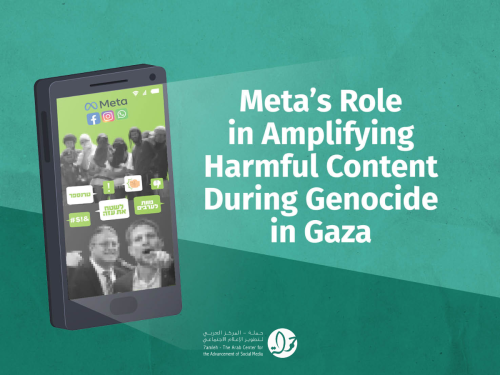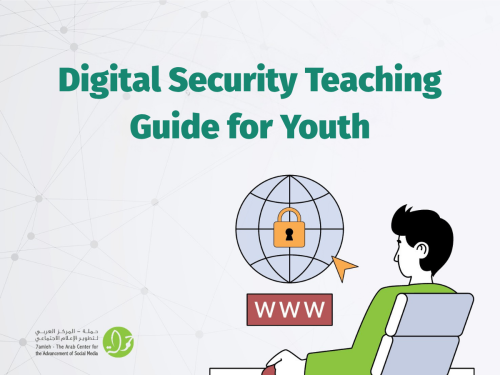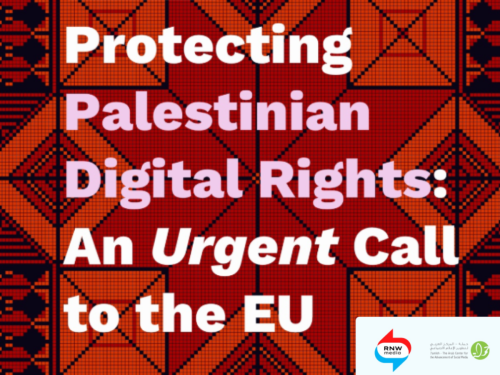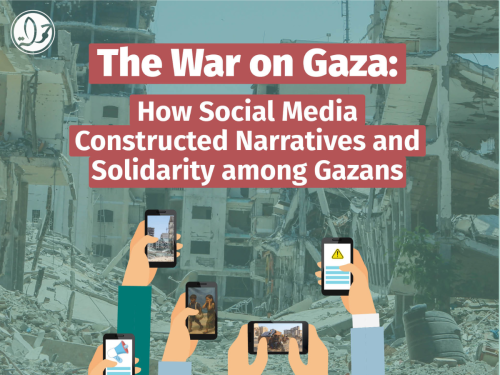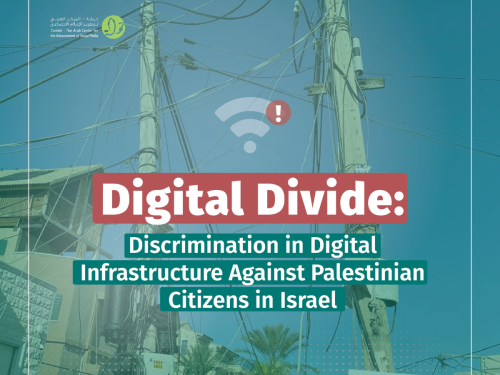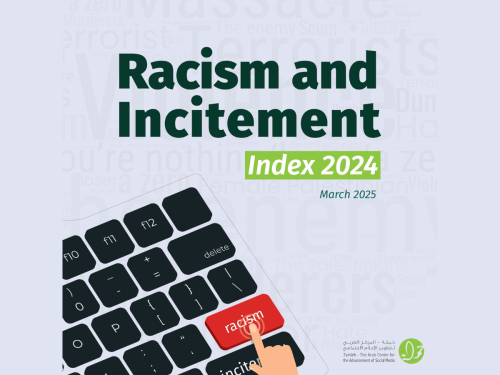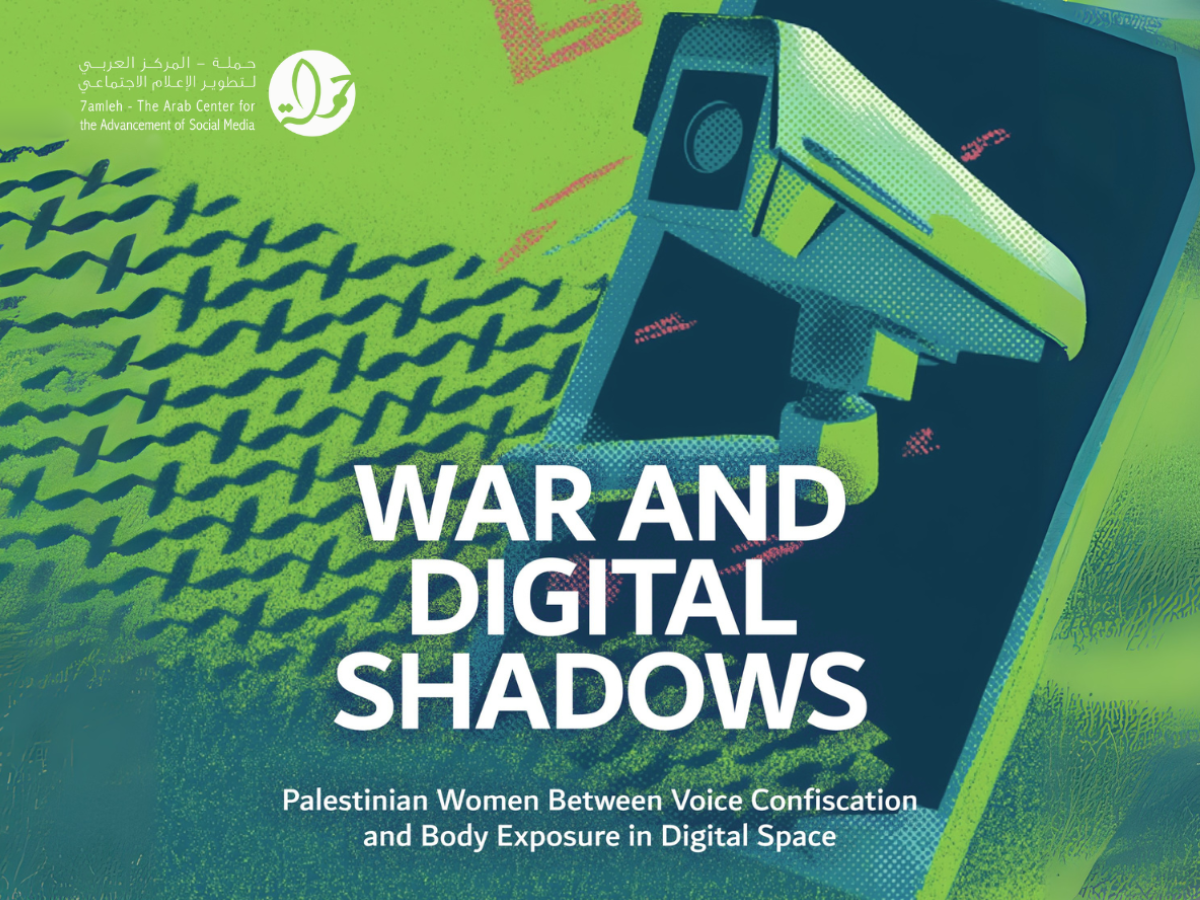
July 21, 2025, 7amleh - The Arab Center for the Advancement of Social Media has released a new study titled “War and Digital Shadows: Palestinian Women Between Voice Confiscation and Body Exposure in Digital Space.” The study focuses on gender-based digital violence targeting Palestinian women amid the ongoing genocide in Gaza, where such violence is used as a tool of repression and control, undermining women’s presence and rights to expression and participation. It highlights the intersection of colonial, digital, and patriarchal violence, in a context marked by fragile protections and persistent violations that extend beyond the battlefield to target women’s bodies and voices online.
The study is rooted in key questions about how gender-based violence has become a tool of political repression and warfare, and how perpetrators exploit the legal vacuum and chaos brought by war to carry out attacks. It seeks to unpack these dynamics by tracing the experiences of Palestinian women in the West Bank, Jerusalem, and within Israel, where gender-based oppression intersects with colonialism, societal structures, and technology. Findings reveal that 40% of women in the West Bank and Jerusalem and 16% within Israel have been subjected to politically motivated digital attacks. Respondents also reported low levels of digital safety, averaging 45% in the West Bank and Jerusalem, and 56% within Israel. The study employs a mixed-methods approach, combining quantitative surveys, in-depth interviews, and focus groups, providing a comprehensive and multi-layered understanding of digital gender-based violence within complex power structures.
The six-chapter study analyzes various forms of digital gender-based violence affecting Palestinian women during the war. The first chapter explores surveillance as a tool of exposure and violation of privacy. The second chapter examines the exclusion of women from digital public spaces. The third documents institutional and security-based punitive measures in response to women’s online political expression. The fourth focuses on verbal and behavioral abuse that persisted during wartime. The fifth investigates how internet shutdowns strip women of basic rights such as communication, health, and mobility. The final chapter critiques the inadequacy of existing protection mechanisms and highlights women's efforts to create alternative safe spaces for resistance.
The study finds that gender-based digital violence is weaponised by Israel to disrupt Palestinian moral and social cohesion, as well as an opportunistic tool that preys on women’s vulnerabilities, and a continued expression of patriarchal and societal abuse fueled by political and digital chaos. Far from being isolated incidents, this violence is shown to be the result of overlapping power systems: the Israeli government, big tech companies, and patriarchal local structures, all deploying surveillance, punishment, and harassment to silence women and control their digital presence, bodies, and voices.
Despite this, the study underscores women’s ability to develop alternative strategies for resistance in the face of failing traditional protection systems. It concludes with a series of recommendations for Palestinian and international actors, as well as tech companies. These include the development of effective legislation and reporting mechanisms, deeper collaboration with feminist organizations, culturally sensitive safety tools, and increased female representation in decision-making roles. The study also urges international pressure to protect digital rights, calls on donors to provide sustainable funding for digital safety initiatives, and highlights the need for grassroots awareness campaigns and support networks in marginalized areas.
7amleh affirms that digital security is a fundamental right for Palestinian women and that addressing digital gender-based violence is essential for building a more just and inclusive society. The organization calls for the adoption of the study’s findings and recommendations into tangible policies that protect women and uphold their dignity across all spaces, particularly the digital realm.
To read the full study, visit the link here.
Related Articles
Subscribe to Our Email Alerts
And stay updated with our latest activities, news, and publications!


